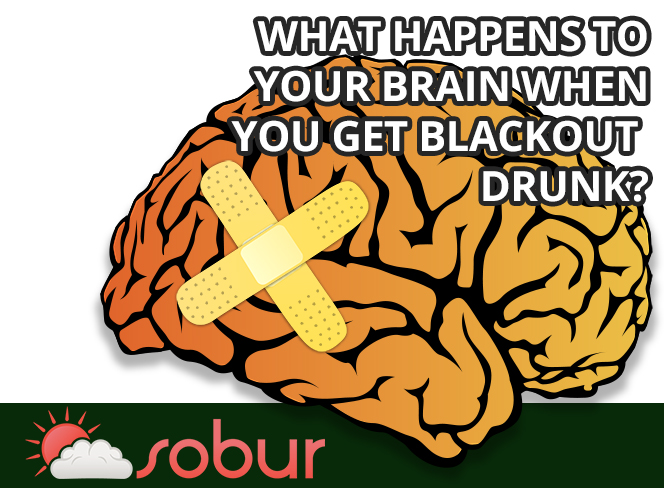
Have you ever woke up, fully clothed in the outfit you went out in the previous night (winter coat and all!) with an epic headache, a crazy hangover and no recollection of what happened over the past 12-18 hours or how the hell you got home? No need to state the obvious, but you experienced an alcohol induced blackout… or you’re Guy Pearce in Memento (great movie!)
Perhaps a worrying statement about modern day drinking culture, but blackouts aren’t exactly a rare occurrence! In a nationwide College Alcohol Survey (Wechsler et al, 1998), 22% of students reported at least one incident of having forgotten where they were or what they did due to drinking in the past year. That’s thousands of hours of completely forgotten frat parties!
A similar study by Professor White (JACH 51:117–131, 2002.) surveyed 772 college undergraduates about their experiences with blackouts, asking “Have you ever awoken after a night of drinking not able to remember things that you did or places that you went?” 51% of the participants who drank reported blacking out at some point in their lives. Of those who had drank in the 2 weeks before the survey, 9.4% said they had blacked out during that time.
The really worrying part: students reported learning later that they had participated in a wide range of potentially dangerous events they could not remember, including vandalism, unprotected sex, and driving. :-s
En bloc vs Fragmentary Blackouts
If, like the aforementioned party hardened students, you drink alcohol on a semi-regular basis, then you or someone you know has likely experienced a blackout.
What’s surprising is that not all blackouts are created equal, some very insightful research, based on interviews with 100 hospitalised alcoholics on the condition reveals that there are two types: “En bloc” and “Fragmentary.” (Goodwin et al. 1969a,b)
In studies, those experiencing en bloc blackouts were unable to recall any details whatsoever from events that occurred while they were intoxicated, despite all efforts by the drinkers or others to help them remember. In the brain, it’s as if the process of transferring information from short–term memory to long–term memory has been completely blocked.
If a friend is retelling a story of an ugly lad/lass you kissed early last night, and the 6 foot 7″ musclebound bouncer you tried to fight towards the end of the night, and you can’t remember any of it; you’ve experienced an en bloc blackout.
As the name implies, those who suffer from fragmentary blackouts, sometimes referred to as “brownouts,” can typically recall forgotten events once reminded of them. Goodwin and colleagues (1969a) reported that experiment subjects who experienced fragmentary blackouts usually become aware that they were missing pieces of events only after being reminded that the events occurred in the first place.
Ever experience momentary flash backs of the robot dance moves you were trying to pull off last night when someone mentions you stopped off at the local night club? Congrats, you’ve experienced a fragmentary blackout, or a brownout.
An interesting thing about fragmentary blackouts, where we remember “bits and pieces” about a night/event is that the brain does not necessarily favour one event over another. The brain does nothing after a drunken night to make us recall the exceptional over the mundane.
Both en bloc and fragmentary blackouts are believed to be caused by a neurophysiological, chemical disruption in the brain’s hippocampus, a region essential to memory formation.
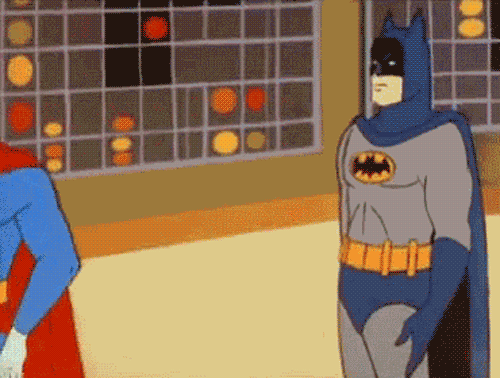
The Brains Off Switch
Blackouts tend to start at blood alcohol levels of at least 0.15%, about twice the US legal limit for driving, especially when a person hits that level quickly.
What’s happening at this stage is alcohol flooding the hippocampus; a brain region that records our lives as they unfold. Specifically, alcohol is interfering with certain receptors in the hippocampus that transmit glutamate, a compound that carries signals between neurons. During this interference, alcohol stops some receptors from working, while activating other receptors. This process makes the neurons create steroids that then prevent other neurons from communicating with each other properly, thus disrupting long-term potentiation (LTP), a process needed for learning and memory.
Put in simpler terms, neurons in the brain stop talking to each other and capturing memories. When the hippocampus is off, no matter how hard we might try, a memory will not be recalled because it will not have been recorded in the first place.
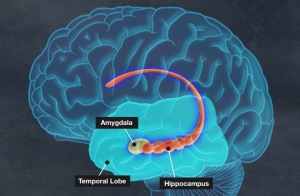
State Dependent memory
In court trials involving rape, drunken recollections rarely go down well with jurors. In a society that can be quick to turn a skeptical eye toward females who claim they are rape victims — she was scantily dressed, she’s promiscuous, she’s just angry at him — prosecutors of sex crimes say one of their biggest obstacles in the courtroom is alcohol.
The question in these trials usually comes down to “Can someone be (usually very) drunk, yet remember specific details of an event?”
While researchers remain unclear about exactly which cues tend to help people recall memory, and why — one radical but still unproven method for jogging the memories of people who have blacked out is to get them drunk again.
Studies of this theory, known as state-dependent learning have suggested that some people who witnessed an event while they were drunk were better able to recall the details later when they were brought back to the same level of drunkenness. (e.g., Goodwin et al. 1969a & White et al. 2002a). A classic study by Godden and Baddeley (1975) looked at scuba-divers who learned word lists either on land or under water. The participants remembered more words when tested in the same context in which learning took place (i.e. land–land or water–water).
Applying this theory in court might be a stretch, likely to get shut down by any opposing lawyer worth his salt, as clear evidence of state–dependent learning under the influence of alcohol is (severely) lacking.
Are Some People More Likely Than Others to Experience Blackouts?
Recent studies that utilised MRI brain scanners show that certain brains are more prone to losing memories when under the influence. Alcohol seems to act as a chemical ‘switch’ in a brain region which ‘encodes’ memories – and some are more vulnerable that others. Reagan R. Wetherill of the University of California, San Diego claims that “study’s findings suggest that some people are more likely to experience alcohol-induced blackouts than others due to the way alcohol affects brain activity in areas involved in self-monitoring, attention, and working memory.”
The study – using 24 students, 12 of whom suffered fragmentary blackouts/brownouts while drinking, and 12 who did not, challenged the students to complete memory exercises both while drunk & while sober. The results proved that the students had similar abilities to remember and to multi-task while sober, but alcohol acted as a sort of magic-switch for some which stopped them remembering.
The results suggest that there is a biochemical trigger for some people to forget what happens while drinking.
“Through use of imaging technology, this study has made the really intriguing finding that the unique patterns of blood flow and neural activity seen in persons prone to experience those amnestic phenomena emerged only after they became intoxicated.
…That finding, taken together with results from prior research on fragmentary blackouts, suggests there are individual differences in how alcohol impacts memory.
Alcohol intoxication reduced activity in a brain region involved in ‘multitasking. Thus, alcohol appears to affect a person’s ability to multitask, and also affects some people’s ability to engage brain areas required for encoding and remembering previous experiences.
Irrespective of the specific type of alcohol-related memory loss involved, if one is experiencing blackouts it is an important signal that negative personal and health consequences are more likely to occur.
Not fully recalling one’s life experiences, particularly those that occur while one is intoxicated, creates a state of vulnerability where the chances increase for the individual to incur all kinds of problems.”
— Reagan R. Wetherill of the University of California, San Diego
How To Avoid Alcohol Blackouts
As an in-depth study by Ryback shows (1971), a key predictor of blackouts was the rate at which subjects consumed their drinks. Specifically, Ryback stated, “It is important to note that all the blackout periods occurred after a rapid rise in blood alcohol level” (p. 622)
If blackouts tend to occur when the alcohol in your bloodstream spikes too high & too rapidly, the easiest way to avoid them is by following a few simple drinking rules to avoid spiking the alcohol levels in your blood:
Eat
As is the case with many drinking-related woes, having a full stomach helps. Not eating will cause your blood alcohol level to elevate more quickly. The stomach has only a few square feet of surface area to use to absorb liquids, but the small intestine has many thousands of square feet specifically for the purpose of absorbing liquids as it is covered with villi. When you eat a meal, the valve between the stomach and the intestine closes for several hours, vastly slowing the influx of alcohol into the bloodstream and preventing blood alcohol level spikes.
Pace Yourself
Slow down, cowboy/cowgirl! Drinking less and slower also obviously helps and an easy way to do this is alternating non-alcoholic drinks with alcoholic drinks.
Don’t Mix Booze and Medication
Many medications can greatly increase your chance of blackouts if combined with alcohol. Some can even be fatal! Medications which commonly lead to blackouts when mixed with alcohol include narcotic painkillers (e.g. codeine), non-narcotic painkillers (aspirin), and nearly all sleep aids including antihistamines like Benadryl and prescription sleep aids like ambien.
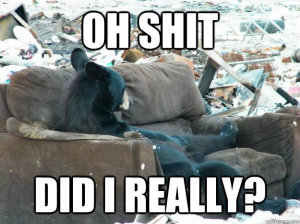
Alcohol and the Brain
The bottom line is that frequent alcohol induced blackouts should not be taken lightly!
Besides the (very likely) possibility of engaging in questionable behaviour that you’d likely regret if you could remember, any time you alter your basic brain function in such a significant way it leaves you open to long-term damage. Addiction expert E. M. Jellinek believed that blacking out after drinking was a sure sign of dependency. This was back in the 1940s, however! 😉
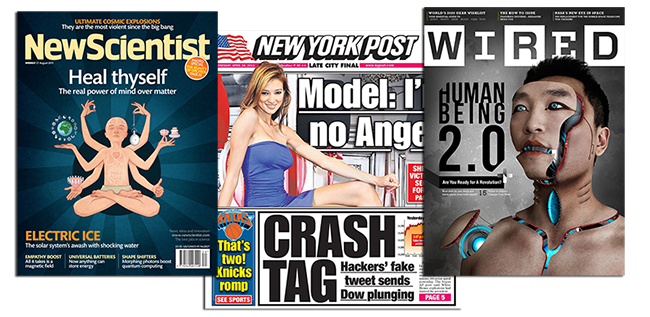
Have You Heard About The “Miracle Hangover Cure” that Wired magazine, New Scientist and the NY Post are all talking about?
It’s called Dihydromyricetin and it will change the way you consume alcohol for ever! Sobur, our hangover cure supplement, uses dihydromyricetin (read more about Dihydromyricetin here) as our key ingredient, along with several other essential ingredients that replenish & restore key vitamins and minerals the body looses when you drink alcohol.
